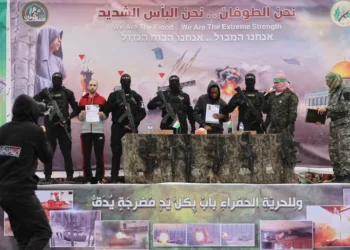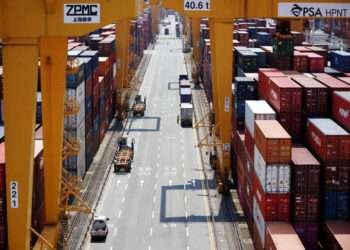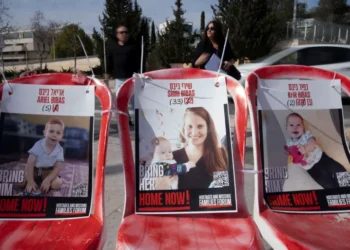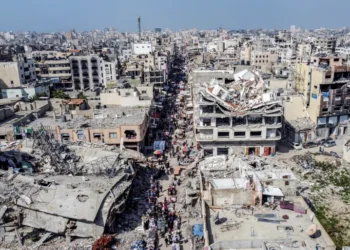Gaza has been completely cut off from aid since May 7, 2024, when Israel took over the Rafah border crossing and moved troops towards the southern city.
With fuel and water supplies now drying up, aid services could be forced to totally shut down within days, leading to more desperation in the war-battered enclave.
According to UN officials, the suspension of aid could force hospitals to shut down and lead to more malnutrition.
Speaking to reporters about the issue, Georgios Petropoulos, the head of the Gaza sub-office of UN Office for the Coordination of Humanitarian Affairs stated that the situation in Gaza has reached “even more unprecedented levels of emergency.”
UNICEF Senior Emergency Coordinator in the Gaza strip, Hamish Young also said, “For five days, no fuel and virtually no humanitarian aid entered the Gaza Strip, and we are scraping the bottom of the barrel.”
“This is already a huge issue for the population and for all humanitarian actors,” he added.
Later, the UN’s Office for Coordination of Humanitarian Affairs (OCHA) warned in a report that unless Israel allows fuel into Gaza immediately, five main hospitals and five field hospitals will have to shut down before the end of the week.
It stated that a total of 28 ambulances, 17 primary healthcare centres, 23 medical facilities in al-Mawasi and 10 mobile clinics that provide immunisations, trauma care and nutrition services will have to halt operations as well.
“Without fuel to run generators, there is a critical risk of losing patients in intensive care units [ICU], including newborns in neonatal ICUs, trauma patients requiring emergency surgeries and pregnant women in need of caesarian sections.
“Furthermore, patients suffering from kidney failure would be deprived of vital hemodialysis treatment.”
Office for Coordination of Humanitarian Affairs
The Norwegian Refugee Council (NRC) called for the “safe and secure” movement of humanitarian aid and fuel into the Gaza Strip.
Underlining the importance of fuel, the NGO said on X, “Without immediate resumption of fuel supplies, all life-critical sectors, including humanitarian, communication, and banking activities, will grind to a halt.”
It added that Israel’s “unlawful evacuation” orders in Rafah “have forcibly displaced” tens of thousands of people.
“With the Rafah crossing closed, access to fuel, humanitarian staff, and essential items is cut off,” the NRC said.
Biden’s Weapons Pause To Have No Impact On Israel’s Rafah Operations
Meanwhile, Elijah Magnier, a military and political analyst, opined that U.S President Joe Biden’s move to restrict some weapons to Israel will not change Prime Minister Netanyahu’s strategy in Rafah.
“This is not going to change any of Netanyahu’s plans to occupy Rafah,” Magnier told a news agency.
“On the contrary, it will give him enough time to spend more time in Rafah and go very slowly to make sure that this war is going to last as long as possible,” he said.
Magnier added that the US weapons pause is inconsequential because it applies only to “intelligent bombs, not dumb bombs, which Israel has plenty of and has been using for the past seven months.”
According to the UNRWA, about110,000 Palestinians have fled Rafah since Israel began advancing troops towards the east of Rafah and intensifying attacks.
READ ALSO: West African Energy Summit: Spotlighting Offshore Opportunities for Global Investment





















